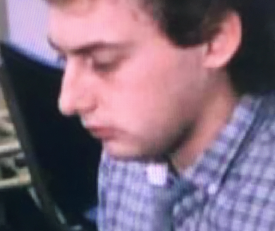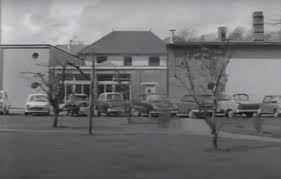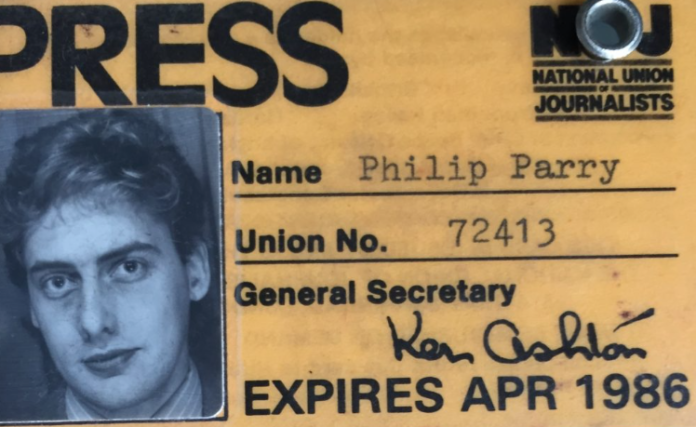- Best of enemies part two - 14th July 2025
- Childish politics - 11th July 2025
- Dead unlucky - 10th July 2025

New technology has changed everything for journalists like our Editor, Welshman Phil Parry, and the launch of an alternative to Twitter has only served to underline this.
Previously Phil has described how he was helped to break into the South Wales Echo office car when he was a cub reporter, recalled his early career as a journalist, the importance of experience in the job, and made clear that the ‘calls’ to emergency services as well as court cases are central to any media operation.
He has also explored how poorly paid most journalism is when trainee reporters had to live in squalid flats, the vital role of expenses, and about one of his most important stories on the now-scrapped 53 year-old BBC Cymru Wales (BBC CW) TV Current Affairs series, Week In Week Out (WIWO), which won an award even after it was axed, long after his career really took off.
 Phil has explained too how crucial it is actually to speak to people, the virtue of speed as well as accuracy, why knowledge of ‘history’ is vital, how certain material was removed from TV Current Affairs programmes when secret cameras had to be used, and
Phil has explained too how crucial it is actually to speak to people, the virtue of speed as well as accuracy, why knowledge of ‘history’ is vital, how certain material was removed from TV Current Affairs programmes when secret cameras had to be used, and
Earlier he disclosed why investigative journalism is needed now more than ever although others have different opinions, and how information from trusted sources is crucial.
The only thing you can rely on is change.
Information used to be preciously guarded, but now anyone can provide it.

When I started in journalism in 1983 [on what was then the biggest-selling newspaper produced in Wales, the South Wales Echo (SWE)], all copy was written on a typewriter,
The ‘byline’ was scrawled on as a reward in biro, and then it was passed physically to the News Editor, before going to the Chief Sub-Editor or layout executive (still in paper form), before being published.
At the Cardiff freelance agency I moved to afterwards (Cambrian), all stories were sent up to the UK ‘nationals’ by a telex machine, which was thought to be cutting-edge because it had a seat and you could type the stories directly into it.


Broadcasting in the 80s was similarly dinosaur-like.
At HTV Cymru Wales, there would be a special basket for your copy to be typed up for the presenter, and later at BBC Cymru Wales a fairly rudimentary computer system was installed for certain people to write stories on, but hard copies would still be printed out for everyone to have a version to see when they were putting out Wales Today.

Now it is all different.
Virtual ‘baskets’ are used to send computerised copy, and the ‘byline’ is added electronically.
Stories can be produced on a lap-top and anyone can use their phone to make a blog, or take pictures for publication.
You are reading this very piece on your phone, computer or tablet, and it has been published on a website.

Artificial Intelligence (AI) is likely to foment another revolution in journalism.
We might, for instance, simply ask a machine to provide local information derived from the internet.
“I think it (AI) is on a par with the 19th-century Industrial Revolution”, Tony Blair said a few days ago.
Last week’s launch of ‘Threads’ by Meta as a rival to the struggling social media platform owned by Elon Musk (Twitter), could also shake things up.

Within a day of the launch of Threads, Meta said more than 30 million people had signed up, in what Chief Executive Mark Zuckerberg pitched as a “friendly” alternative.
Threads, is a ‘text-based conversation app’ where users are able to publish posts up to 500 characters long and include links, photos and videos.

As with Twitter, the posts can be replied to, liked or shared by others. Mr Zuckerberg took to the new app to boast about its user figures: “This is as good of a start as we could have hoped for!”.
There is now a new way to publish bite-size pieces of information, and in the future there could be more. We are only at the start (or perhaps the middle!) of things.
 More change for journalists like me is on the horizon…
More change for journalists like me is on the horizon…
The memories of Phil’s extraordinary decades long award-winning career in journalism (during which he saw constant change) as he was gripped by the rare neurological disabling condition Hereditary Spastic Paraplegia (HSP), have been released in a major book ‘A Good Story’. Order it now.

Another book, though, has not been published, because it was to have included names.
Tomorrow – how an admission of police mistakes by the biggest force in the UK highlights huge errors by the largest one in Wales after a string of miscarriages, yet there has been no formal apology, and it comes amid mounting concern that a country of only 3.1 million people has FOUR forces.









